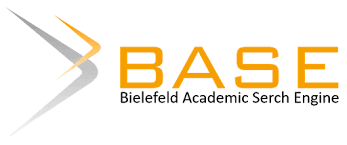PENGARUH MODEL PEMBELAJARAN PROBLEM BASED LEARNING TERHADAP MOTIVASI DAN HASIL BELAJAR SISWA KELAS X SMA NEGERI 1 MENGWI
DOI:
https://doi.org/10.59672/widyadari.v26i2.5562Keywords:
Problem Based Learning, Learning Motivation, Mathematics AchievementAbstract
Student learning outcomes represent a key indicator of educational success, encompassing positive changes in knowledge, skills, attitudes, and behaviors acquired through instructional processes. However, low motivation and academic achievement in mathematics remain persistent challenges in many schools, including SMA Negeri 1 Mengwi. One promising approach to address these issues is the implementation of the Problem Based Learning (PBL) model, which actively engages students in inquiry, investigation, and concept construction through real-world problem solving. This study aims to examine the effect of the Problem Based Learning model supported by GeoGebra media on students’ motivation and mathematics learning outcomes in Grade X at SMA Negeri 1 Mengwi during the 2024/2025 academic year. The research employed a quasi-experimental method using a post-test only control group design. Two classes were randomly selected, with one assigned as the experimental group and the other as the control group. Data were collected using a motivation questionnaire and a mathematics achievement test. The results indicate that the application of the PBL model significantly enhances both student motivation and learning outcomes. The experimental group achieved a mean motivation score of 83.8 and a mathematics achievement score of 88.8, compared to 62.2 and 69.7 respectively in the control group. These findings suggest that PBL fosters curiosity, active participation, and deeper conceptual understanding more effectively than conventional teaching methods. Based on these results, the Problem Based Learning model is recommended as an alternative instructional strategy to improve the quality of mathematics education at the senior high school level, particularly in promoting student engagement and academic performance.
Downloads
References
Arifuddin, & Maufur. (2018). Pendidikan Matematika dalam Perspektif Konstruktivisme. Jakarta: Prenadamedia Group.
I Made Surat, I Komang Sukendra, I. M. Subrata. (2022). The Effect of Open-Ended Learning Model on The Understanding of Concept by Controling Numerical Talent of Students. 1(11), 2029–2034. https://doi.org/10.5281/zenodo.6392246
I Made Surat, I Komang Sukendra, I Dewa Putu Juwana, B. P. C. (2023). Exploring The Horizontal And Vertical Mathematization Process In Realistic Mathematics Education To Prepare Students For The Era Of Industrial Revolution 5.0. IOSR Journal of Mathematics, 19(3), 1–9. https://doi.org/10.9790/5728-1903010109
Juwana, I. D. P., Sukendra, I. K., & Surat, I. M. (2024). Penerapan Model Pembelajaran Problem Solving Untuk Meningkatkan Kemandirian Dan Hasil Belajar Pada Matakuliah Geometri Datar Dan Ruang. Widyadari, 25(1), 95–107. https://doi.org/10.59672/widyadari.v25i1.3657
Juwana, A., Santika, I. G. A., & Wibawa, I. M. (2024). Pengaruh Pendekatan Kontekstual terhadap Hasil Belajar Matematika Siswa SMA. Jurnal Pendidikan Matematika Indonesia, 9(1), 45–56.
Kadek, I., Mayudana, Y., & Sukendra, K. (2020). Analisis kebijakan penyederhanaan RPP. Indonesian Journal of Educational Development (IJED), 1(1), 61–68. https://doi.org/10.5281/zenodo.3760682
Lestari, N., & Yudhanegara, M. R. (2019). Motivasi Belajar dan Pembelajaran Matematika. Dalam Yanda, O., et al. (Ed.), Strategi Pembelajaran Abad 21 (hlm. 112–130). Bandung: UPI Press.
Maharani, D., Suryadi, D., & Herman, T. (2019). Peran Matematika dalam Kehidupan Sehari-hari dan Implikasinya terhadap Pembelajaran. Jurnal Pendidikan dan Pembelajaran Matematika, 7(2), 89–97.
Prasetyo, A., & Dasari, R. (2023). Pengaruh Lingkungan Belajar terhadap Prestasi Akademik Siswa SMA. Jurnal Evaluasi Pendidikan, 11(2), 101–115.
Ocmita Yanda, K., Octaria, D., & PGRI Palembang, U. (2019). Indiktika Pengaruh Model Pembelajaran Inkuiri Terhadap Kemampuan Pemahaman Konsep Ditinjau Dari Motivasi Belajar Siswa. Desember, 2(1), 58–67.
Rahmawati. (2022). Pengatuh Model Pembelajaran Inquiry Terhadap Motivasi Belajar Siswa X Pada Mata Pelajaran Matematika DI SMA NEGERI 9 Bulukumba
Sukendra, I Komang, & Yuliastini, N. K. S. (2019). Analisis Tingkat Pendidikan Orang Tua, Motivasi Belajar, dan Kemampuan Pemecahan Masalah Hasil Belajar Matematika. Widyadari: Jurnal Pendidikan, 20(2), 78–89. https://doi.org/10.5281/zenodo.3516990
Sukendra, I Komang, Widana, I. W., & Juwana, I. D. P. (2023). Senior High School Mathematics E-Module Based on STEM Orienting to Higher Order Thinking Skills Questions. JPI (Jurnal Pendidikan Indonesia), 12(4), 647–657. https://doi.org/10.23887/jpiundiksha.v12i4.61042
Sukendra, I. K., Surat, I. M., & Widana, I. W. (2024). Student Worksheets and the Level of Students ’ Confidence in Solving the HOT Questions. Ndonesian Research Journal in Education |IRJE|, 8(1), 363–373.
Surat, N., Yasa, I. N., & Widiantara, I. M. (2022). Evaluasi Pembelajaran Matematika di SMA: Tantangan dan Solusi. Jurnal Pendidikan Indonesia, 8(3), 134–145.
Surat, N., Yasa, I. N., & Widiantara, I. M. (2023). Peran Guru dalam Meningkatkan Motivasi Belajar Siswa. Jurnal Kependidikan dan Pengajaran, 9(1), 55–70
Surat, I. M., Sukendra, I. K., & Juwana, I. D. P. (2023). The use of LKPD in terms of Students ’ Confidence Level in Solving HOTS Questions in Class X. Journal for Lesson and Learning Studies, 6(2), 304–310.
Wayan Widana, I., & Putu Lia Muliani, Mp. (2020). UJI PERSYARATAN ANALISIS.
Downloads
Published
How to Cite
Issue
Section
License
Copyright (c) 2025 Widyadari

This work is licensed under a Creative Commons Attribution-NonCommercial-ShareAlike 4.0 International License.
Hak cipta mencakup hak eksklusif untuk mereproduksi dan mengirimkan artikel ini dalam semua bentuk dan media, termasuk mencetak ulang, memotret, mikrofilm dan reproduksi serupa lainnya, serta terjemahannya. Reproduksi dari bagian manapun dari jurnal ini, penyimpanannya di database dan transmisinya dengan bentuk atau media apa pun, seperti salinan elektronik, elektrostatik dan mekanis, fotokopi, rekaman, media magnetik, dan lain-lain, akan diizinkan hanya dengan izin tertulis dari penerbit jurnal.






1_(1).jpg)











